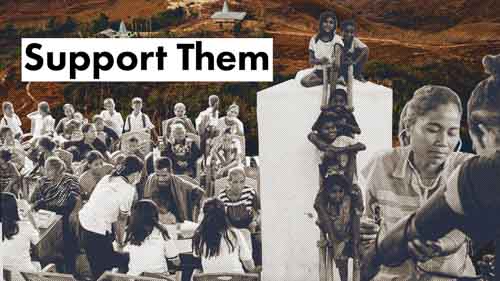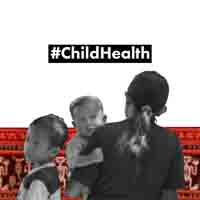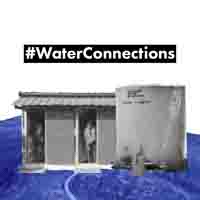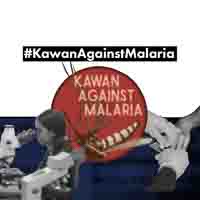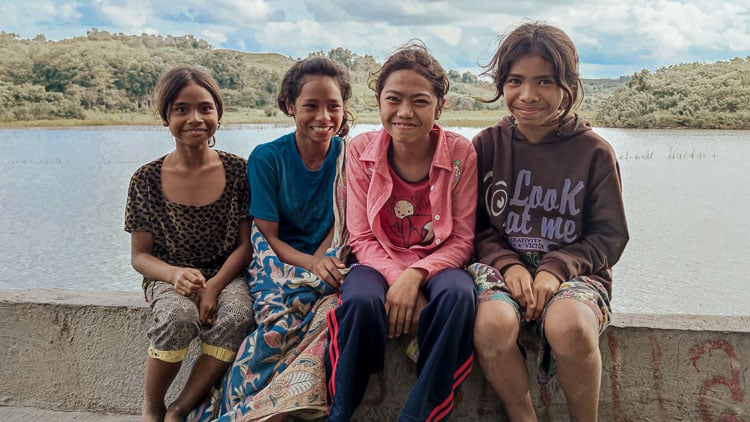Empowering Girls by Breaking Menstrual Taboos and Restoring Dignity in Rural Indonesia.
How Fair Future’s health and water programs reshape lives in East Sumba.
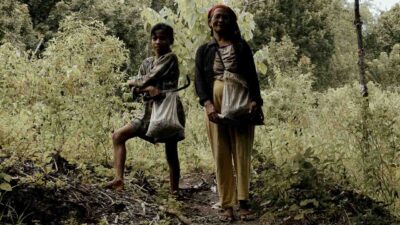
Visual stories of girls, women, and communities reclaiming dignity through care, education, and access to water
The Words We Don’t Say: Breaking the Silence Around Menstruation, Dignity, and Empowerment in Ultra-Rural Indonesia
In the remote villages of East Sumba, silence is more than just a sound—it’s a language. It carries the weight of traditions, shame, and all that cannot be spoken. Among those who bear this burden the most are the young girls who walk miles daily to fetch water, barefoot and with heavy jerrycans. Yet what burdens them, most often, cannot be seen: the unspoken truths of their bodies, their cycles, their pain, and their fear of being misunderstood.
Menstruation remains taboo in these isolated communities. There are no toilets, running water, soap, or private spaces. Hygiene products are a luxury beyond reach. Most girls have no one to discuss what is happening to them. Their voices, quieted by stigma, fall into the cracks of daily survival. Yet these are not merely private challenges. They are public health emergencies and human rights issues.
“On average, a woman will menstruate for nearly seven years over the course of her lifetime. That’s seven years of managing pain, hygiene, and dignity—often in silence, especially in ultra-rural regions where access to clean water, sanitation, and information is limited.”
Menstruation is a natural process affecting nearly half of the world’s population. In East Sumba, insufficient education about menstrual health creates fear in young girls. This problem worsens due to inadequate sanitary facilities and the use of unhygienic materials like rags or leaves. Menstrual health is vital for these girls’ physical health, educational opportunities, and psychological well-being. A girl who understands and manages her menstrual cycle is likelier to stay in school, increasing her chances for further education and employment, ultimately empowering her community economically.
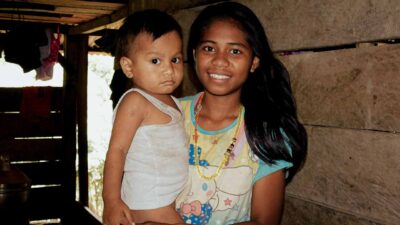
Visual stories of girls, women, and communities reclaiming dignity through care, education, and access to water
Fair Future and Kawan Baik are committed to breaking that silence. Through the Primary Medical Care program and the Water Connections initiative, we are not just treating symptoms but building trust. We sit with communities, listen to their stories, and create space for hidden truths. The Kawan Sehat health agents—local women trained in care, dialogue, and empathy—are at the forefront of this change. They speak softly but clearly, often from personal experience, to help young girls understand what is happening to them and to say, “You are not alone.”
This isn’t about teaching from above. It’s about learning together. It’s about creating spaces where women and girls feel seen, respected, and safe to speak. Where health means more than medicine—it means being heard. It means having clean water, a toilet, a cloth, and a hand to hold.
Social dynamics in these communities often disadvantage women and girls. By equipping them with knowledge and resources, we strive to foster a sense of empowerment and autonomy over their health and decisions. Studies have shown that supporting women in managing their menstrual health leads to broader social changes that benefit entire communities, reducing gender inequalities and improving the quality of life across generations.
As we prepare for our tenth public health campaign on sexually transmitted infections, we hold this same philosophy close: no more silence! We aim to make health education a shared journey through posters, conversations, and trust-building. Real change doesn’t come from shouting over silence; it comes from gently, courageously listening to it.
This is how dignity is restored.
Today, the 13th of May, 2025 – Alex Wettstein
List of Related Organizations with Hyperlinks
- UN Women: advocates for gender equality and menstrual health, aligning with Fair Future’s goals of restoring dignity in rural areas.
- WaterAid: Works to provide clean water and toilets, essential to menstrual hygiene, just like Fair Future’s Water Connections initiative.
- Days for Girls: This NGO creates sustainable menstrual solutions, much like our community-based care and education programs in East Sumba.
- Plan International: Plan works to eliminate period poverty globally and promote girls’ education, in line with Fair Future’s mission in remote Indonesia.
- WASH United: Promotes menstrual hygiene and access to water, echoing our health equity efforts through medical and infrastructure programs.
- The Pad Project: This initiative fights period poverty through education and local pad production, which resonates with our empowerment goals.
- Girls Not Brides: While focused on ending child marriage, they highlight menstrual health as key to gender equality, a principle Fair Future shares



